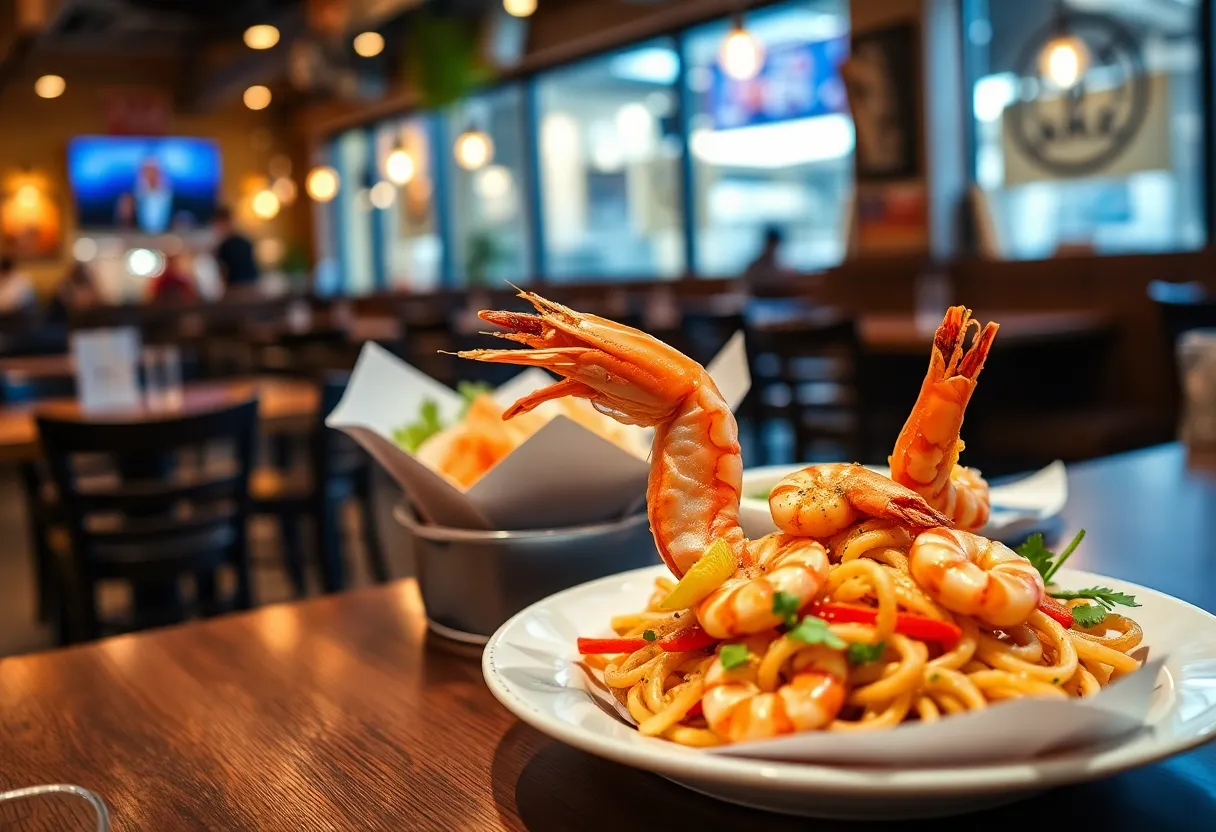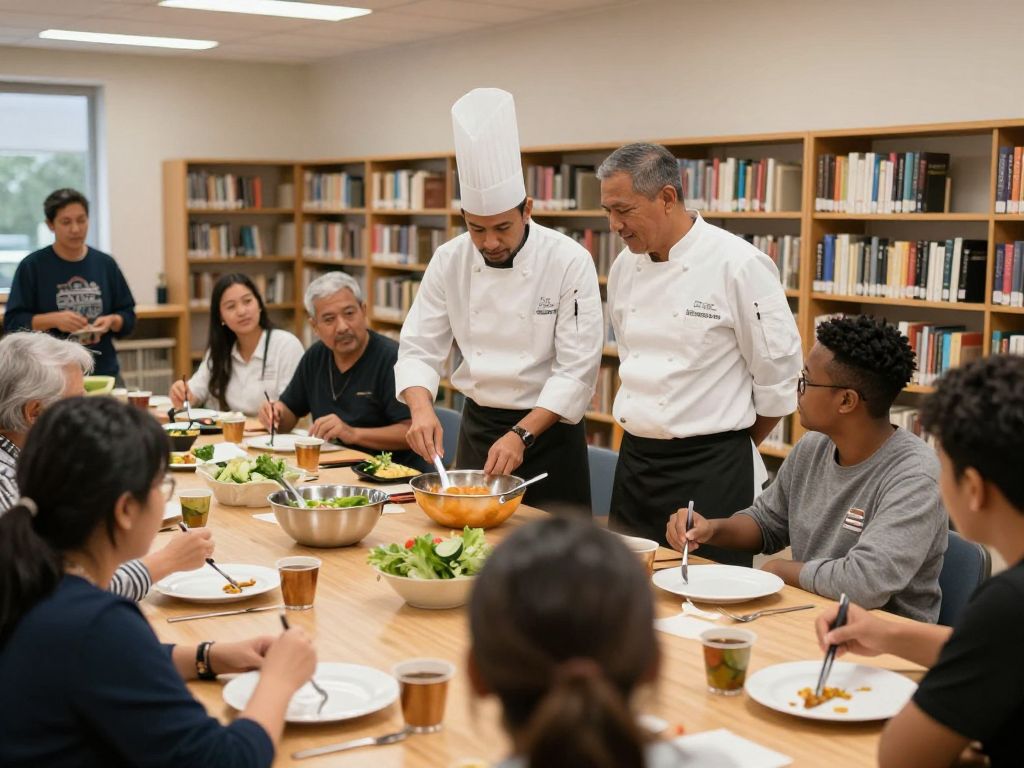News Summary
In a significant legal action, the South Carolina Shrimpers Association has filed a lawsuit against 40 Charleston restaurants for allegedly mislabeling imported shrimp as locally sourced. The lawsuit arose from a genetic study revealing that most tested establishments provided fraudulent shrimp origin claims. The Shrimpers Association seeks not only monetary damages but also an injunction to prevent the continued misrepresentation. This case highlights broader concerns regarding seafood supply chain integrity and the impact of misleading marketing practices on local industries.
Charleston, South Carolina – The South Carolina Shrimpers Association has initiated legal action against 40 unidentified restaurants in the Charleston area, alleging that they have been mislabeling imported shrimp as locally sourced. Filed on June 13, 2025, the federal lawsuit accuses the restaurants of false advertising and breaching South Carolina’s Unfair Trade Practices Act.
The lawsuit emerges from a genetic study conducted by SeaD Consulting, a Texas-based research firm, which uncovered that 40 out of 44 restaurants tested inaccurately represented the origin of their shrimp. The testing, conducted in late May, revealed that only four restaurants served genuine wild-caught shrimp from South Carolina, while 25 establishments were found to have made outright fraudulent claims regarding the source of their shrimp.
The restaurants involved in the lawsuit are referred to as John Doe Restaurants 1-40, as their specific names have not been disclosed. Along with monetary damages, the Shrimpers Association seeks an injunction to stop the restaurants from continuing to make misleading accusations about the sourcing of their shrimp products.
Rocky Magwood, the president of the South Carolina Shrimpers Association, has pointed to the necessity of preserving the local shrimp industry. The association’s hope is that this legal pursuit will help revitalize the struggling sector and better protect local shrimpers from the adverse effects of deceptive marketing practices.
The results of the SeaD Consulting tests raise concerns about the broader seafood supply chain. Reports indicate that many restaurants may opt for lower-cost imported shrimp, which pressures local shrimpers and leads to misrepresentations that harm the industry’s reputation. Biologist Kerry Marhefka pointed out that similar misleading practices could be prevalent if more seafood establishments in the area were assessed.
The Southern Shrimp Alliance, a related organization, plans to reach out to the implicated restaurants, urging them to either begin sourcing shrimp locally or to ensure their menus reflect accurate information about shrimp origins. This effort demonstrates the mounting pressure on restaurants to prioritize transparency and authenticity in their seafood offerings.
Local shrimpers contend that the practices of mislabeling shrimp not only jeopardize their livelihoods but also tarnish the reputation of the South Carolina shrimp industry as a whole. Public sentiment among local consumers shows a strong preference for honesty in seafood sourcing, accentuating the desire to preserve the culinary heritage associated with locally-sourced seafood.
Amid the legal proceedings, the South Carolina Shrimpers Association advocates for the implementation of a country of origin labeling law to safeguard both consumers and local shrimpers. Given that South Carolina currently lacks comprehensive state legislation on seafood labeling, the state has seen a higher rate of misrepresentations in restaurant menus compared to states with stricter regulations.
The ongoing developments in this case highlight a critical issue in the restaurant and seafood industries, bringing attention to the need for accountability and transparency. As the lawsuit unfolds, the implications could significantly impact the practices restaurants employ regarding shrimp sourcing and could influence future legislation aimed at protecting local industries and consumers alike.
Deeper Dive: News & Info About This Topic
HERE Resources
Additional Resources
- Live 5 News: Shrimpers Sue Lowcountry Restaurants over Import Advertising Practices
- Post and Courier: Shrimpers Lawsuit Over Shrimp Fraud
- Charleston City Paper: Local Shrimpers Miffed About Imported Shrimp
- Post and Courier: Charleston Restaurants Selling Imported Shrimp
- Live 5 News: Lawsuit Against Shem Creek Restaurant
- Wikipedia: Shrimp
- Google Search: shrimp fraud lawsuit South Carolina
- Google Scholar: shrimp marketing practices
- Encyclopedia Britannica: shrimp
- Google News: local shrimpers South Carolina

Author: STAFF HERE CHARLESTON
The CHARLESTON STAFF WRITER represents the experienced team at HEREcharleston.com, your go-to source for actionable local news and information in Charleston, Charleston County, and beyond. Specializing in "news you can use," we cover essential topics like product reviews for personal and business needs, local business directories, politics, real estate trends, neighborhood insights, and state news affecting the area—with deep expertise drawn from years of dedicated reporting and strong community input, including local press releases and business updates. We deliver top reporting on high-value events such as the Spoleto Festival USA, Charleston Wine + Food Festival, and the MOJA Festival. Our coverage extends to key organizations like the Charleston Metro Chamber of Commerce and the Charleston Museum, plus leading businesses in tourism and maritime industries that power the local economy such as South Carolina Ports Authority and the Charleston Visitor Center. As part of the broader HERE network, including HEREaiken.com, HEREbeaufort.com, HEREchapin.com, HEREcharleston.com, HEREclinton.com, HEREcolumbia.com, HEREgeorgetown.com, HEREgreenwood.com, HEREgreenville.com, HEREhiltonhead.com, HEREirmo.com, HEREmyrtlebeach.com, HEREnewberry.com, HERErockhill.com, HEREspartanburg.com, HEREaustin.com, HEREcollegestation.com, HEREdallas.com, HEREhouston.com, and HEREsanantonio.com, we provide comprehensive, credible insights into South Carolina's dynamic landscape.





